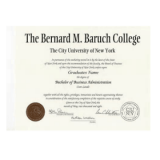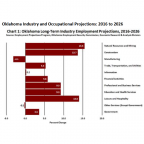Interviewing for a Professional Job

Facing Tough Interview Questions
Most applicants for a new job or promotion are more concerned about the in-person interview than their skills and qualifications for the job itself. If you don't have a 4-year college degree, and the interviewer is aware of it, it's clearly not a deal breaker for this position if you have made it to the person-to-person interview stage. Nevertheless, if most of the employees at the company have college degrees, you may want to describe your plans to finish your degree part-time (if you have such plans). There is more information about degree programs on our page about Best Bachelor's Degrees.
In fact, having a list of possible interview questions and answers is probably not as useful as really good preparation for the interview in general. In the following article, journalist Kim Remesch describes some things the job hunter should focus on before his (her) face-to-face interview.
Job Hunting: Prepare for the In-Person Job Interviewby Kim Remesch Your resume got your foot in the door for that great job you’ve been trying to land. Now it’s time to prepare for the in-person job interview. Here are six tips to think about before you have a face-to-face meeting with a potential employer: Employer Wants and NeedsKeep one thought in mind: the interviewer wants to determine if you are the right person for the job. Can you do the job based on what s/he reads, hears and sees? Your resume may show a lot of administrative potential, but if you are applying to a dental office, and you’ve obviously paid little attention to your own dental care, that’s a problem. What plays well on paper, may not be as stellar in person. As you prepare for the job interview, keep a copy of the job requirements in front of you. While you develop a potential list of questions, that list of job requirements will help you develop answers that will be relevant to the company and to the specific job. Research the CompanyYou should have researched the employer while creating your cover letter. Dig deeper as you will want to incorporate things about the company, match their wants and needs to your experience, when answering interview questions. One of the things you will be judged on is whether you’ve bothered to get to know what the employer wants. You will be asked many questions that revolve around the company’s wants and needs. Forego the research, and the interviewer will know his company doesn’t matter enough for you to take the few minutes to get to know the business. For example, you learn that the company sponsors a community group or volunteers for certain charities. When asked what you do in your off time, relate to that community involvement and volunteer work you do. If you’ve been touched by that charity or cause, speak to that. First ImpressionsAccording to research among hiring managers, the main impression on whether or not to hire you will be done in 10 minutes. Your resume and cover letter may seem like the first impression, but Americans are visual, so employers will remember a face more than the name on a typed piece of paper. You want to stand out but not in an obtrusive way. How you dress will depend on the type of job you are seeking but in general a neat suit with a shirt that’s not too flashy will do. You’ll be judged by your appearance, but you want to leave a clean, put together impression, as opposed to one that makes you stick out in an odd way. Your shirt, for example, should be freshly ironed with none of those right-out-of-the-bag folds. Avoid flashy jewelry. A simple watch, necklace, against a new haircut will leave a good impression. This is not the time to try out a new hairstyle. That said, if you are applying for a creative job -- a job at a trendy boutique, your research will tell you how to dress to fit in. Generally, however, even if you will be going into work clad in jeans, as are the bulk of the employees, for that interview, think neat, clean and put together. Show the interviewer you care. Wrap it UpThe interviewer will ask if you have any questions. If you launch into a laundry list of questions regarding nut-and-bolts operations of the job, you’re missing the point. The interview wants you to ask questions, but he’s also checking to see how well you’ve researched the company. In keeping with community activism theme above, you can ask about specifics on the community events and how employees play a role. If a company has been rated number one in a category, ask what is being done to keep that title, and how employees can make that happen. Let the interviewer know that you are interested in the company as a whole, and that you are interested in the goals of the company. It’s Not Over YetAfter you’ve walked out the door, you may think that’s the end of the story, so now you should just sit back and wait. Show your manners. If you’ve been searching for a job for any length of time, you know how hard it is to get your foot in the door. The in-person interview has brought you one step further to the job you want -- and need. Show the interview another side of you by following up on the visit. Do not bombard the company with phone calls asking if a decision has been made. Instead, as soon as you get home, jot off a hand-written thank you note and send it along. If there was a point you felt you stumbled on in the interview, or a question you couldn’t answer, you may want to mention it in the follow up. It would show that you are interested enough to replay the interview in your head, and that you care enough to follow up with an answer, even when you don’t have to. The Next StepIf you receive a call or email saying you did not get the job, it doesn’t stop there. Follow that up, too. Thank the person for his time, and let him know that you are interested in working for that company (if you are), and you hope there will come an opportunity that he finds suited to your qualifications. You’ll leave the person with a good impression of your enthusiasm and follow through on projects. |
Do You Have a Question?
If you have recently been a participant in a face-to-face interview and have a question (or answer) that most people [probably] haven't heard, please place a comment below. Other readers will certainly appreciate it.
MBA Degree Program Benefits

An MBA degree demonstrates its true value when it is partnered with a motivated candidate and an instructional program that teaches one how to achieve success despite being surrounded by adversity.
How Can An MBA Help Your Career?
An MBA (Master of Business Administration) is a postgraduate degree earned by students who have developed a complete understanding of business through the study and application of business theory and principles. It is generally considered to be a highly prestigious and widely sought after degree in the business world.
The ultimate goal behind higher education is to increase your career and earnings potential. The MBA degree prepares you for positions of leadership by providing the professional development, leadership skills, and expertise needed to effectively manage the business and its employees. Many positions today, including senior management and executive, are only available to persons who have achieved this level of education.
The personal development that begins during your undergraduate studies continues and expands during MBA studies. Throughout the course of the MBA, you will learn how to use the critical thinking skills that you developed as an undergraduate, applying them to practical business applications. This translates to increased reasoning and problem solving skills that are paramount to running a successful business.
An intricate part of any MBA program is the leadership skills it teaches. The characteristics of a good leader are developed and instilled in you throughout the course. You will learn the importance of building relationships with employees, fostering a good working environment, developing intuition, employee commitment, and discipline. You will also learn how to develop and improve workplace culture and employee competence as well as the ability to delegate responsibilities.
The MBA program will also develop you into an expert in your chosen specialty. There are many different specialties available, from accounting and finance to marketing, risk management, and operations. If you seek a particular discipline, you will study in detail the science, psychology, theories, and application of your specialty. Students in the marketing discipline will study the science of selling goods and services as well as the psychology of customers and the market, while risk management students will study how to appropriately assess and evaluate risks as well as the regulations governing industries which are susceptible to risk. These specializations are in addition to the general business administration curriculum that is taught to all MBA students. Since businesses in every industry need people with this combination of general and specialized knowledge, an MBA degree will be a valuable asset regardless of what career field you choose after graduation.
While a solid MBA program is designed to provide you with all of the skills you will need to become successful in business administration, there are additional opportunities an MBA provide as well in the form of networking and personal branding. An MBA program gives you access to a wide network of MBA students, graduates, faculty, and community business leaders. These connections can be invaluable when you are searching for a job, defining your career path, or building business relationships. The personal branding advantages of an MBA program will also help in these areas since the degree alone signifies extensive training in management and leadership. The school you attend also has a brand associated with it that can be helpful in opening doors in your career as well. A school’s brand is determined by the history of its program, the skills and capabilities of its graduates, and the size of its alumni network. A strong school brand can provide you with the extra leverage you need to dictate your own career.
Regardless of where you obtain your degree or what specialization you pursue, an MBA degree will provide everything you need to expand your opportunities and take control of your career.
MBA Position Cover Letter

How to Write an Effective MBA Cover Letter even if you have little to no work experience
Even with your MBA degree in hand, finding a professional position that fits your requirements can be quite challenging and frustrating. You need to pass through several barriers in the job application process including finding references and tailoring your application so that it not only stands out, but also impresses the hiring committee. Many companies will not consider you again if your initial application fails. This is why your first application needs to be a success. Fortunately, there are many recent MBA graduates who have successfully found a position for which they are an excellent fit. Observing some tips to improve your chances of landing that dream job can make all the difference.
Tailor Your Cover Letter to the Company
One of the best methods to improve your opportunities is to tailor your resume to each position. This particularly includes your cover letter. You must identify in your application why you’re interested in the position and why you choose to apply to that company. This means you will need to research the company, and mention, specifically, how your capabilities can assist them in achieving their goals. In a cover letter, many people typically greet the “Hiring Manager,” but if you can find the reader’s name, you’ll gain extra points with them. Showing that you know relevant information about the company and addressing the hiring manager by name will prove to the company representatives that you’re an applicant who is serious about joining their team. In some cases, your cover letter will be read by several people; in this case you may want to address them as “To the Committee Considering <position name>” or something that applies to multiple people.
Offer Specific Examples
A common mistake made by many applicants is that they tend to describe their characteristics in generic terms such as team player, hardworking, or even honest. First of all, these qualities are considered point of entry. Further, they are so overused and uncreative that some hiring managers may discard application before reading the second line. They don’t know that you’re hardworking just by looking at your application, so, instead gain extra points with the hiring manager by relaying something specific you have done that only a hard worker would do. Anyone can look up a few generic skills and include them in their cover letter. However, if these skills describe you quite well, don't mention them at all. Instead, provide specific examples of accomplishments which demonstrate that particular characteristic. Another way to deliver examples of a positive characteristic is to use a professional reference such as a professor or previous manager with whom you may have worked or interned. This extra step can give you an edge over other applicants, because in most cases, other applicants won’t even bother listing any references until asked.
Please Proofread!
It may be hard to believe, but hiring managers routinely find simple mistakes like spelling errors and other types of typos in job applications -- even for high level positions. Leaving a typo in your application can completely turn off a hiring manager and result in your application being rejected. This can easily be prevented by simply proofreading your cover letter before sending it. If you have to, proofread it several times. The last thing you want is to have your application rejected when you worked so hard on it. Sometimes when we proofread documents written by ourselves, it can be hard to see the errors. This is why asking a friend or colleague to proofread your cover letter can help find those errors.
You also need to ensure that reference information is fully accurate, as a simple miscommunication can make it appear as if you are lying about your connections. You don’t want your references providing contradicting information because of a typo.
Consider a PostScript
When you have finalized your cover letter and signed it, including a postscript to remind them of your highlights can be another good way to improve your chances. If you have contacted a previous employer or professor and have secured their support concerning your qualifications for the position, don’t be afraid to include that in your postscript.
If you’re serious about applying to your dream job, the best way to get started is a well-written cover letter. Spending some extra time writing your letter will make all the difference. You will want to make your cover letter just unique enough so that it not only stands out of the crowd, but really impresses the reader. Include examples of your most positive qualities, and proofread your letter several times before sending it.
Best Bachelor’s Degrees

According to the U.S. Census Bureau, those with a bachelor’s degree enjoy median annual salaries of $51,554 (as cited in Anas, 2006). Unfortunately, with a weakened economy, even bachelor’s degree holders can struggle to find lucrative work. Therefore, it is important to choose a college degree that will prepare you for a successful career. Read on to learn about bachelor’s degrees that have the potential to lead to high-paying, in-demand jobs, even in a recession.
Bachelor’s Degrees in Nursing
Despite the recession, the field of nursing is expected to continue to grow. According to the U.S. Department of Labor’s Bureau of Labor Statistics, the field of nursing is expected to expand by 23.5 percent through the next decade, with an estimated 233,499 yearly job openings for nurses.
Careers in Nursing: According to the Department of Labor, nurses enjoy median annual earnings of $60,010. They also engage in meaningful work, cooperating with physicians and other medical professionals to treat patients in healthcare settings. They may be required to maintain patients’ medical records and monitor patient symptoms and vital signs, such as temperature and blood pressure. Nurses collaborate with physicians to plan patient treatment, and they often counsel patients regarding disease prevention.
With considerable job growth and above-average earnings expected for nurses, a bachelor’s degree in nursing is valuable, even in a dubious economy.
Bachelor’s Degrees in Computer Science
Also a growing field, computer science provides an opportunity for success, despite the recession. A bachelor’s degree in computer science prepares students to work in the field of computer software engineering, which is expected to grow by 28.2 percent in the next ten years, according to the U.S. Department of Labor. 33,139 job openings are expected in the field each year, and computer software engineers boast median annual earnings of $89,070, as indicated by the U.S. Department of Labor.
Computer software engineers are often skilled in mathematics and science. They design and test software for usability, in addition to conducting research regarding new software. Computer software engineers are also often responsible for fixing malfunctioning software and installing new software systems. They may also assist customers with the running of software.
Bachelor’s Degrees in Psychology/Social Work
Obtaining a bachelor’s degree in either psychology or social work can also prepare students for successful careers.
With a bachelor’s degree in psychology or a related field, one can become employed as a substance abuse counselor and earn $35,580 a year, according to the U.S. Department of Labor. The department of Labor has also reported that substance abuse counseling is expected to grow by 34.3 percent during the next decade, with 20,821 yearly job openings in the field.
According to Michael Farr and Laurence Shatkin, authors of the 2009 Publican 50 Best Jobs for Your Personality, substance abuse counselors “counsel and advise individuals with alcohol; tobacco; drug; or other problems, such as gambling and eating disorders” in addition to working with the families of addicts and implementing programs aimed at prevention (p.332). Substance abuse counselors play a leading role in the treatment of addictions.
Similar to substance abuse counseling, the field of social service management is also growing, with the U.S Department of Labor estimating that 23,788 jobs will be available in the field each year. The median yearly salary is $54,530, according to the Department of Labor. To obtain a position in the field, one is typically required to have a bachelor’s degree in human services, social work, or a related field, as well as relevant job experience.
Social services managers enjoy fulfilling work, setting goals and creating policies for social service programs and organizations. They oversee the budget and activities of their agencies, often supervising social workers and other professionals.
Bachelor’s Degrees in Accounting
Accounting is a growing field within the area of business. The Department of Labor expects 134,463 jobs to become available in the field each year, with accountants earning median yearly salaries of $57,060.
Accountants prepare and maintain financial reports for businesses, ensuring that they are accurate. These reports include information regarding profits, loss, assets, and liabilities. Accountants may also be responsible for preparing and filing tax information for businesses.
Accounting, in addition to social service management, substance abuse counseling, computer software engineering, and nursing, is a growing field, even in a state of economic recession. By choosing the proper college degree, students can become employed in one of these fields and earn a comfortable living.
Careers for Bachelors Degrees in Psychology

What to Do With a Psychology Degree
According to statistics from the U.S. Department of Education, colleges and higher education institutions awarded 94,271 bachelor’s degrees in psychology during the 2008-2009 school year, rendering it a rather ubiquitous field of study. Students are obviously interested in pursuing careers in psychology, but before deciding to do so, it is important that they be aware of potential career paths available to those who earn bachelor’s degrees in psychology. The following options are realistic for psychology graduates.
Lower-Paying Options in the Field
Psychology degrees teach students to understand human behaviors and motivations, in addition to providing them with the knowledge to identify psychological disorders and other mental health issues. Though these skills are important in modern society, there are very few entry-level positions in which they are directly involved. Unfortunately, most jobs that make use of psychology degrees are relatively low-paying, and bachelor’s degree holders may be overqualified for such positions.
If not concerned about earning high salaries, psychology students may be satisfied in a number of jobs available to those with bachelor’s degrees. They may, for example work as teaching assistants at preschools or after school programs. A psychology degree is beneficial in such jobs, as most psychology graduates have taken courses in childhood development and behavioral psychology. Those interested in pursuing teaching assistant positions can expect to earn $22,200 a year, according to the Bureau of Labor Statistics.
Psychology graduates with bachelor’s degrees may also enjoy working as assistants/caregivers at social services agencies or residential treatment centers, where their education will be useful when working with individuals who have mental health issues or developmental disabilities. According to the Bureau of Labor Statistics, salaries in this field average $27,280 a year.
If not interested in working in working as teaching assistants or caregivers, psychology graduates may pursue employment as receptionists at mental health clinics, counseling centers, or social service agencies. Median earnings for receptionists are $11.80 an hour, according to data from the Bureau of Labor Statistics.
Pursuing More Lucrative Alternatives
Students may be discouraged by low-paying jobs in the field of psychology, but they can find higher-paying opportunities if they are willing to extend their job searches to other areas. Psychology degrees teach students to effectively work with and communicate with diverse groups of people; therefore, they provide the skills necessary to be successful in management and sales positions.
Psychology degrees are useful in sales positions, as they require employees to effectively communicate with and influence customers while providing them with quality service. The Bureau of Labor Statistics has revealed that sales representatives can expect to earn $70,200 a year, on average.
Because psychology graduates are often skilled in working with people, they may also be interested in working as mangers of restaurants or retail stores. Salaries in this field average $46,320, according to the Bureau of Labor Statistics.
If careers in management and sales do not appeal to students, they may find success elsewhere. A psychology education is helpful in any position that requires working with people; jobs in human resources, marketing, and communication may be viable options.
Obtaining Advanced Degrees
If low-paying jobs and alternative options do not satisfy psychology students, obtaining an advanced degree is perhaps the best decision. Not only do master’s and doctoral degrees present graduates with the opportunity to earn more money; they also allow them to pursue careers more directly related to psychology.
Those who want to work as clinical or counseling psychologists must obtain doctoral degrees in psychology. After completing their graduate education, psychologists enjoy median annual salaries of $64,140. If graduates are uninterested in counseling, they can also find employment in research and teaching positions at colleges and universities.
If students want to spend less time in graduate school, they may also be interested in pursuing a master’s degree in social work, which will prepare them to work in counseling, case management, and crisis response positions in mental health clinics, social service agencies, hospitals, and non-profit organizations. Estimates from the Bureau of Labor Statistics indicate that social workers can expect to earn $46,220.
While graduate degrees offer students the option to earn more money and pursue their specific interests, they are not the only path available to those interested in psychology. Those with bachelor’s degrees in psychology may be satisfied working with people in sales and managerial positions, or, if they’re open to earning lower wages, they may find success working in entry-level positions more closely related to their degrees.









